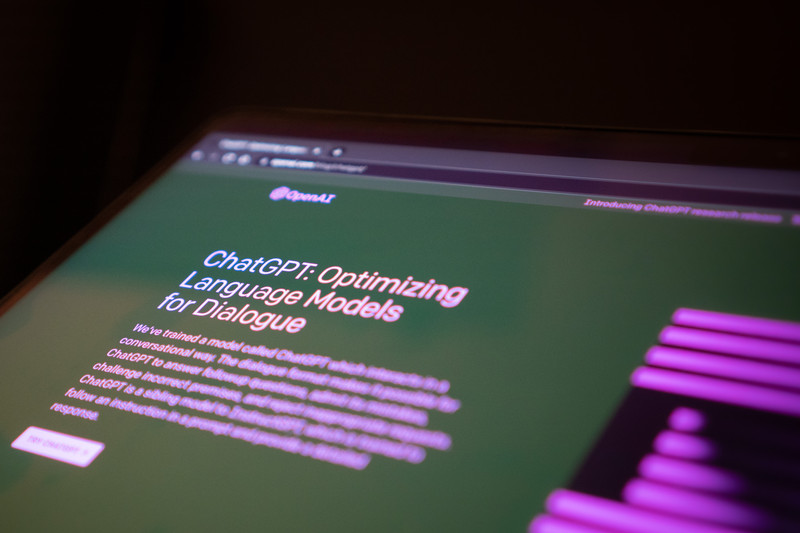EU & the World
MEPs Push To Create The World’s Strictest AI Rules

The MEPs adopted new rules Thursday (11th May) that regulate artificial intelligence tools and ban predictive policing technology. They also banned facial recognition technologies for surveillance of citizens.
Regulators around the world are racing against the development of new technologies such as ChatGPT – an AI-based bot.
In the internal market and civil liberties committees on Thursday, MEPs chose to toughen the proposed rules as a way to defend human and fundamental rights.
Brando Benifei of the Italian Socialists & Democrats, one key legislator working on this file, told reporters on Wednesday that “it was the first attempt to regulate AI in the World in such a horizontal and thorough manner.”
The leading MEPs in charge of the legislation do expect that the legislation will not undergo major changes before the vote in the plenary.
The AI Act, first proposed in 2021 and slated to take effect in 2022, would establish rules for any product or service that uses artificial intelligence systems. The legislation divides AI tools into four categories based on the level of risk they pose, from minimal to unacceptable.
Riskier applications are subject to stricter rules that require more transparency and accurate data.
The use of policing tools which predict where and who will commit crimes — such as those in the movie Minority Report – is to be banned.
The use of remote facial recognition will be prohibited, with the exception that it can be used to counter and prevent a specific terrorist attack.
The Chinese government is expected to ban the “social scoring” systems that are already being developed in China. These systems judge or punish individuals and businesses based on their behavior.
AI systems that are used in high-risk areas like employment and education and could have a significant impact on a person’s future face strict requirements for transparency, risk assessment and mitigation measures.
Benifei stated on Wednesday that the goal is to “avoid a controlled society based upon AI, but instead make AI support more human development and freedom, not a securitarian dream”.
“We believe that these technologies can be used for bad purposes, as well as good. We consider the risks too high,” he said.
“With our text, also show what kind of society you want,” said the Italian MEP, adding that: “a society in which social scoring, predictive police, biometric categorisation and emotional recognition, indiscriminate scraping facial images from the Internet are considered unacceptable practices.”
Employers or police use emotional recognition to identify tired drivers or workers.
Most AI systems such as video games and spam filters fall into the low or no risk category.
The original legislation did cover chatbots, but MEPs amended it to include ChatGPT or similar generative AI systems on the same level with high-risk AI systems.
As a requirement, all copyrighted materials used to teach AI how to generate text or images, videos, or music must be documented so that creators are able to decide if their work was used and if they should get paid.
Violations will be punished with fines up to EUR30m, or six percent of the company’s global annual revenue. This could amount to billions in the case tech companies such as Google and Microsoft.
It could take many years before the new rules are implemented. In mid-June, MEPs will vote on the legislation. Negotiations with EU governments and commission will then begin.
The final text should be ready by the end of this year or by early 2024, at the latest. There will then be a grace period, which is usually two years, for the companies.
Loopholes
Digital rights advocates welcomed the first steps in the adoption of EU’s AI Act, but criticised its treatment of migrants’ rights.
Sarah Chander, senior policy advisor of European Digital Rights, a rights advocacy organization, said that the parliament’s list of bans sends a global message to governments and AI-developers, siding with the civil society’s demand that some uses are too harmful to allow.
Chander said: “Unfortunately, despite the European Parliament’s support of people’s rights, it does not protect migrants from AI harms.”
EDRi claimed that MEPs had failed to include in their list of prohibited practices the use of AI to facilitate illegal pushbacks or to profile people discriminatorily (e.g. AI-based lie detectors and risk-profiling system).
Border officials would also be prohibited from using real-time facial identification technology.
There is no better safeguard [than this ban]. A border crossing is a public area. According to the text that we have now, you won’t be able deploy AI biometric technology in a space public,” said Romanian Dragos Tudorache from Renew Europe.
EDRi warned that any easing of the definition of a high-risk AI could lead to dangerous loopholes.
AccessNow, an advocacy group for digital civil rights, argued against removing the self-assessment exemption from high-risk classification, which could turn the AI Act into a “self-regulation”.
On the other hand, industry groups warned that the regulation could create additional costs for businesses and hinder digital innovation in Europe.
“European AI developers will now be at a disadvantage in comparison to their foreign counterparts due to the changes made by MEPs — such as the wide extension of the list for AI systems that are prohibited and those of high-risk usage cases,” said the Computer and Communications Industry Association Europe, a non profit organisation, which counts Amazon Apple, Facebook, Google and Twitter among its membership.
EU & the World
Nicole Kidman ‘Didn’t Feel Exploited’ Filming Erotic Scenes in ‘Babygirl’ Movie

The actress previously told ‘Vanity Fair’ that she felt ‘very exposed’ while working on ‘Babygirl.’
EU & the World
Adam Brody to Star as Hot Rabbi in Netflix Film ‘Nobody Wants This’

Adam Brody will play a hot rabbi in Netflix’s ‘Nobody Want This’ starring alongside his on-screen love interest Kristen Bell.
EU & the World
JD Vance Mocks Kamala Harris’ CNN Interview

Donald Trump’s running mate compared the vice president’s CNN interview to former Miss South Carolina Caitlin Upton’s 2007 speech.
-

 Sports7 days ago
Sports7 days agoOfficial: Juventus announces sixth purchase
-

 Health & Society7 days ago
Health & Society7 days agoThe intoxicated society
-

 Politics5 days ago
Politics5 days agoThe Russian patriarch to Putin: You are the first truly Orthodox president
-

 Sports6 days ago
Sports6 days agoBeautiful Juve: Vlahovic and youth rout Verona. Thiago Motta first
-

 Sports6 days ago
Sports6 days agoJuventus, Vlahovic: “Now we play a different game.”
-

 Politics4 days ago
Politics4 days agoEU Intensifies Pressure: Six-Month Extension of Russia Sanctions
-

 Health & Society3 days ago
Health & Society3 days ago7 Superfoods That Will Boost Your Fitness Results
-

 EU & the World5 days ago
EU & the World5 days agoBrittany Cartwright Files for Divorce From Jax Taylor After 5 Years of Marriage









